Marie Mancini, Princesse Colonna
Anna Maria Mancini, adopted, like her sisters and cousins, the French version of her name, Marie, as she came to France. Born on August 28, 1639, to the Italian aristocrat and necromancer Lorenzo Mancini and Geronima Mazzarini, sister of Cardinal de Mazarin, Marie was the sister of Laure, Olympe, Hortense, Marie Anne and the first love of Louis XIV.
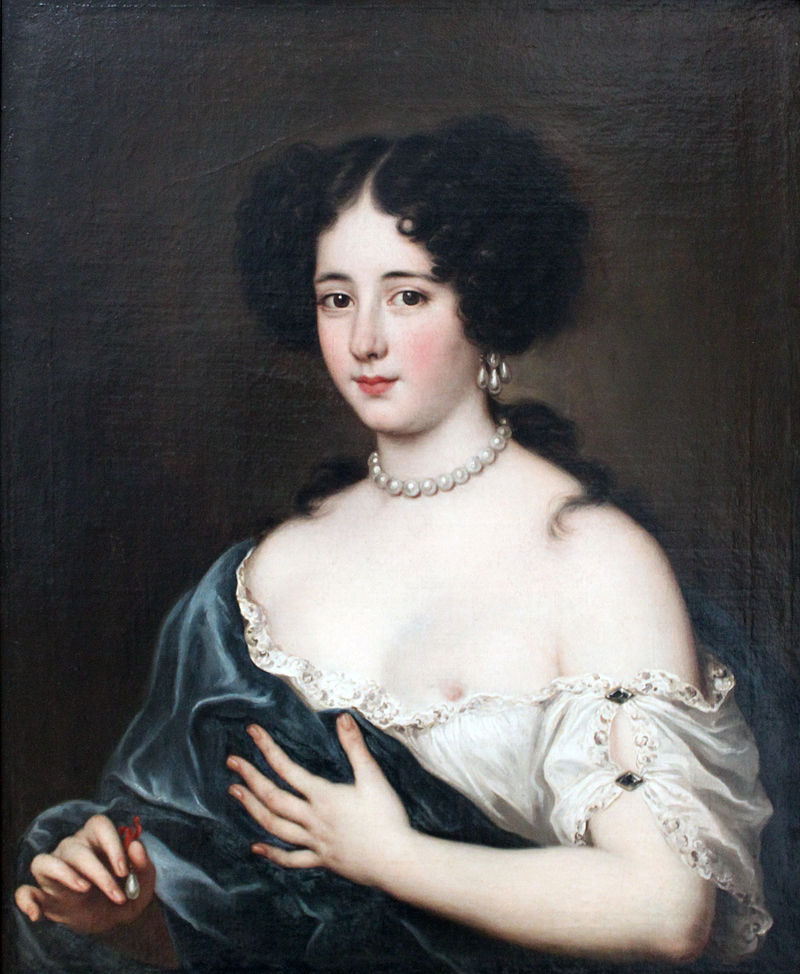
Marie spent her first two years on French soil in a convent. Described as “dark, vivacious and beautiful,” Marie was not much favoured by her mother. Already before her departure to France, Geronima tried to persuade her daughter to enter a convent and never leave it. Perhaps her attempt was influenced by her husband, who apparently read the stars shortly after Marie’s birth and predicted Marie would be the cause of great trouble for the family. Marie’s uncle, Cardinal de Mazarin, was not too fond of her either. Marie was a fanatic reader during her youth and was already quite educated as she reached France, which did not sit well with Mazarin and the Queen Regent. Anne d’Autriche personally involved herself in the education of Marie’s sisters and her cousins Laure and Anne Marie Martinozzi, but Marie seemed to have been a little bit too dreamy for her and Mazarin.
She was not the first Mancini to capture the attention of the young Louis XIV, her sister Olympe had gained the King’s favour before Louis showed any kind of interest for Marie. Legend has it that the magic moment of Louis getting heart eyes for Marie was as Louis XIV fell ill during the Siege of Dunkirk in 1658. The conditions there were quite the catastrophe and the young King caught a mysterious fever, of which we can say today it was most likely typhus. It pushed Louis to the edge of death. Whether he would survive this malady, something none of his physicians had seen before, was unclear for quite a long time. Marie was so moved by the King’s illness and worried that he would not survive it, that she spent hours weeping and praying. As Louis finally recovered and the tale of a weeping Marie was forwarded to him, he felt rather flattered and it is said that from then on it was Marie he started to ogle instead of Olympe. The latter had just given birth to her first child after being married off to Eugène Maurice de Savoie by Mazarin, something that made her a little less interesting in Louis eyes. As Olympe returned to court after her pregnancy break, she found that Marie was now in her place.
Louis started to seek the company of Marie, who was, although very beautiful, not actually a la mode in her look. Blonde hair was all the rage at that time, and Marie was way too Italian in her looks for the spirit of the time. Marie was actually considered to be the least attractive of the Mancini sisters and Mazarin often jested about her unusual thinness and odd posture. She was praised nonetheless, especially by Louis. He found himself in a state of enchantment. Marie was not only beautiful, charming and lively, she was extremely smart too. Louis could not say that of himself, for his education was, especially in matters of literature, very lacking. As the avid reader she was, Marie introduced Louis to a whole new world, that of books and their wisdom.
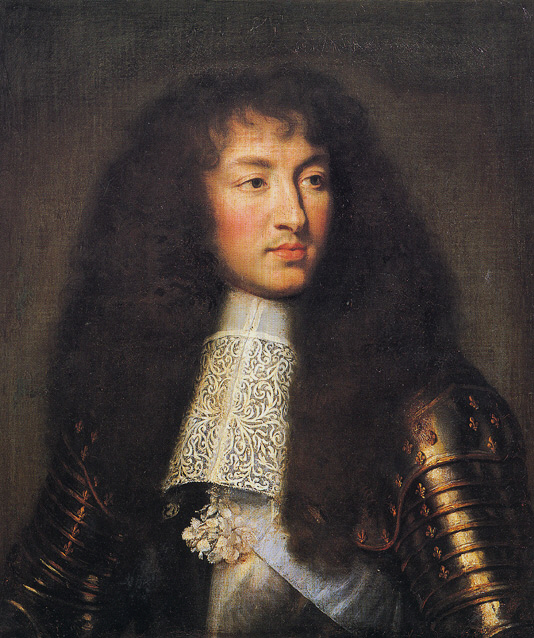
Thanks to Marie’s innocent charm, Louis fell head over heels for her. He took her on strolls through the fairy-tale grounds of Fontainebleau, conversed with her whenever he had the chance, he showered her with compliments, danced with her at balls and danced together with her at the great court ballets, in which Marie always had an especially flattering role. For Louis it was the first time he was really in love, a romantic and idealistic kind of love, an innocent kind of love. He surely took his chances in covering her pale hands with kisses and even risked a kiss on the lips now and then, but their relationship remained quite innocent. Louis had, by now, quite a bit of experience with bed-sports, but the occasional kiss and holding of hands seemed to have satisfied him already.
Their relationship did not stay secret for long of course. It was way too obvious for most. Louis could not keep himself away from Marie for too long and if he was not with her, he talked of her, talked of how she inspired him, how she liked him, Louis the young man, not the King, how she would like him even if he was not King. Marie had quite the good influence on Louis. She managed to wake his interest for poetry and novels and cheered his moods. Both spend plenty of time discussing what books they had read and what poems were especially well sounding. Anne d’Autriche appreciated this new longing of her son to expand his horizon, what she and Cardinal Mazarin did not appreciate at all was Louis obvious romantic interest for Marie. He was meant to marry soon and this was not quite fitting in such a situation. Mazarin and Anne d’Autriche would much rather have him ogle Olympe or any other young lady of the court, then to see this dangerous interest in Marie that could possibly inspire Louis to do something very stupid in their eyes. They were right in their presumption.
Louis had actually gotten it into his head to marry Marie. He wanted her as his Queen, and for that he was even willed to give his throne up and live like Christine of Sweden, travelling through all of Europe as King without a crown, but with Marie on his side. The scandal was perfect.
The whole point why Mazarin had brought his nieces to France, was to marry them into Princely families in order to establish himself and his family among the high nobility of France. Thus to gain more influence and respect from those who chased him out of the Kingdom during the Fronde. But this was going to far, even for Mazarin. The King of France could not possibly marry the daughter of a slightly nuts Italian aristocrat. The King of France had to marry for the sake and glory of his Kingdom, there was no place for something like love, nor for Louis’ dreamy idea of Marie as Queen. Anne d’Autriche shared this opinion. One can only imagine what happened as Louis spoke with his mother and the Cardinal about the matter.
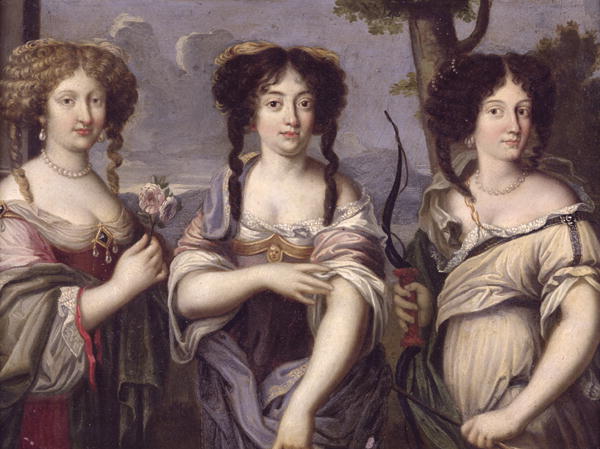
Marie and Louis were informed that whatever was between them had to end at once. That Louis would marry, but not Marie. That the whole Kingdom was in danger and it was all her fault. How could she think she could possibly be Queen of France? How could she let Louis suggest something like it? Dreaming about it is something different that actually asking for permission to do it. To do something so very ridiculous. Both of them need to face reality now, it is about time. Louis would marry the Spanish Infanta, for the sake of his Kingdom. To end the war between France and Spain that had raged for so long and to establish friendship between both Kingdoms.
It was a very tearful time for Louis and Marie, but Louis was not willed to give his Marie up yet. Again, he went to Mazarin to ask him for Marie’s hand and to plead his cause and again he was told it will never happen. Mazarin would rather stick Marie into some convent, something Marie’s mother had asked him to do on her deathbed, than see her as Queen of France. It was hopeless.
Louis had a very difficult decision to make, probably one of the most difficult of his whole life. He could either keep Marie on his side, against the wishes of her uncle and his own mother, and marry her nonetheless. He could run off with her and do a Christine of Sweden, which would mean he would need to leave everything behind. His family, his crown, his divine right to be King of France, his country and its people, his idea of Kingship, his plan to make France the most powerful country of the world. If he would run, he would disappoint everyone. If he would give his crown up, he would cross God himself, who had given him this divine right to rule, that was his and his alone. This divine right, this privilege, meant that not even he could always do what he wanted, that he had to think of his country first, that it didn’t matter if he had a different bride in mind, when the Infanta would bring France and its people the peace that was so direly needed. He had to do what was the best for his Kingdom. He had to let Marie go and marry Spain. God had made him King for a reason, and that reason was surely not to throw everything away at the first hint of difficulties.
Thus Louis was betrothed to Marie-Thérèse d’Autriche and poor Marie sent as far away as possible. Marie left Paris on June 22, 1659, together with her sisters Hortense, Olympe and Mazarin himself… just to be sure.
Louis went to Mazarin again in order to beg he may be allowed to see Marie one last time in private to say farewell properly, but he was only allowed to see her in public when her carriage would leave…. just to be sure.
Marie, shaking and weeping much, was confronted with a sobbing Louis, who quickly pressed a set of expensive earnings made of pearls into her hands. He had bought those last-minute from his aunt Henriette Marie de France, exiled Queen of beheaded Charles I of England. Marie entered the carriage, as composed as she was able to, and whispered to Louis ‘Sire, I am leaving and you weep, and yet you are King’. A sentence that inspired Jean Racine to add the line “You are Emperor, my Lord, and you cry!” to his tragedy Bérénice, a play about a marriage that is not permitted for the sake of an Empire. (Emperor Titus is in love with Bérénice and has promised to marry her, but the Roman Empire does not tolerate the idea. In the end Titus submits and Bérénice leaves. Sounds familiar…….)
Mazarin left his nieces in Poitiers to finish the last arrangements for the planned wedding Louis and the Spanish Infanta. Marie, in quite the gloomy mood, then continued with Hortense and Olympe to La Rochelle and a sort of semi-exile. She later described her forced parting from her Louis as the worst time of her life, a time in which she wished for her own demise daily, the pain of separation being too overwhelming and the thought of Louis wedding someone else robbing her of her will to live. Saying that she had never suffered more in all her life. Louis surely shared that feeling, for although he now played along to his mother’s plans, he was rather quiet, more than usual, and clearly troubled.
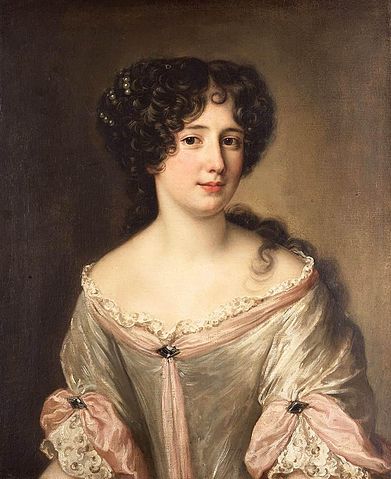
In La Rochelle, Marie tried her very best to distract herself from her sorrows by going to plays and arranging some herself. She visited a row of fétes and saw fireworks displays, but nothing could really distract her enough. Marie left the comforts of La Rochelle for the old chateau de Brouage, a rather inaccessible place with view of the sea and a bit of a fairy-tale charm. Its old walls payed her company as Marie threw herself into a period of excessive mourning. Another thing that payed her company, were quite a few letters Louis had written her in the meanwhile. He manage to set up a way for him and Marie to communicate secretly. Plenty letters swearing everlasting love were exchanged between the two of them and Louis even managed to send Marie a little dog, with the words “J’appartiens à Marie.” engraved on the collar. The secret exchange of letters did not stay secret for long. Mazarin got hint of it and tried to put and end to it at once by intercepting the letters and writing a letter himself to Louis that once again reminded Louis of his duties and painted his niece in a bit of a bad light. Louis did not care much for it, yet.
His marriage with the Spanish Infanta was nearly settled and as everyone travelled towards the Spanish border to greet the Infanta, Louis actually managed to gain the permission of his mother to visit Marie at Brouage. As Louis reached the secluded fairy-tale chateau, in which his Marie had longed every night for him to come and rescue her from her suffering, he swore Marie his everlasting love again in an emotional last meeting of lovers. Louis told Marie, that although he would marry someone else, it would be she who owned his heart, forever.
What both did not know, was that Mazarin had a plan to change that. He charged Olympe with distracting the King. It worked in the past and could work again, Mazarin thought, and if talk of it then reached Marie ears, it might change her opinion of him a little. At the same time, Louis was fed with talk of Marie flirting candidly with a Prince of Lorraine, who might become her husband.
Mazarin’s plan was a success. The King sent fewer letters to his Marie, of which he thought she was otherwise occupied, and Marie returned fewer letters, thinking her Louis made merry with her sister Olympe. Louis marriage to the Spanish Infanta took place as planned. Marie did not attend it, for it was feared if Louis would catch a glimpse of her, she might capture his attention again.
Louis payed another visit to Brouage, accompanied by Marie’s brother Philippe-Jules among others, on his way back from the Spanish border, but Marie was not in her fairy-tale chateau anymore. She had left for Paris, with permission of her uncle. The King spent the night in Brouage, after walking the beaches close-by in quite the melancholic mood. It was during this time that his dream of Versailles was born.
Back in Paris, Marie saw her Louis again, but things had changed now. It was clear that both were still heartbroken, yet Louis seemed to have accepted the situation. In public at least. Marie was not greeted with the tenderness she had perhaps hoped for, instead Louis acted as if she was no-one that meant anything to him. He was polite, yet icy and did not seek her out as Mazarin feared. Poor Marie must have been shattered by all of that. It was at least enough for Marie to retire from court and ask her sister Hortense to speak ill of the King in her presence, hoping she might fall out of love this way. As she still fought with her feelings for Louis, her uncle continued his mission to find a husband for her. Marie seemed quite fond of Charles de Lorraine, said Prince of Lorraine Louis was told she was flirting with, but there was one major problem with the match for Mazarin. Charles de Lorraine lived not only just Paris, he was also a courtier. Marrying him would mean that Marie would be constantly in Louis’ sight.

The other option was an Italian Prince. Lorenzo Onofrio Colonna, Grand Constable of the Kingdom of Naples. This Colonna had a bit of an eye on Marie for years already and his family was influential, already since medieval times. They were close to the Pope and quite wealthy as well.
Marie agreed to the match. She felt too humiliated by Louis and could not stand the thought of remaining in Paris. It did not take long until everything was sorted and a wedding contract was returned from Rome to Paris, already signed by Colonna. His bride was now eager, almost in a hurry, to get wedded. Marie married the Italian Prince only a few days later in 1660 per procurationem in the chapel of the Louvre. Louis had kindly allowed her to use it for the ceremony.
Marie spent her last hours at the French court as Princesse, which allowed her to sit in presence of the Queen, while her belongings were packed swiftly. It is hard to say what Marie must have felt as Louis captured her hand, for what she probably thought would be the last time, and kissed it to wish her farewell as she climbed into her carriage bound to Rome.
Her new husband was not as dashing as the King of France, but he wasn’t too bad either. At least during this fist few years. Colonna was quite surprised, almost shocked, to find Marie a virgin during their wedding night and made sure all of Rome was aware of it. He had not expected it and all of Rome probably neither.
The new Princesse Colonna, or Madame Connétable, gave birth to her first child, a boy named Filippo, on April 7, 1663. She gave birth to two more sons, Marcantonio in 1664 and Carlo in 1665. In Rome Marie got herself a bed in form of a golden shell in which she received visitors dressed as Venus. Said bed was flanked by four seahorses and sirens and was lined with golden brocade. Quite the sight. She got quite a bit eccentric, too eccentric for her husband. Although he was quite enamoured with her at the start, Marie’s moods and habits changed that. After their third child was born, Marie’s relationship to her husband went down. She said they had enough children now and she did not wish to go through childbirth again. He only visited her once in a while after it and even declared in public he did not wish to be with her anymore. Poor Marie turned her attentions to the more pleasurable things in life again. She went to fetes, the opera and theatre, danced and made merry with young and handsome courtiers. In Rome she was joined by her sister Hortense, who fled France and an abusive husband, and her brother Philippe-Jules.
As Colonna turned to other ladies to satisfy what Marie now refused to do with him, she got quite a bit jealous and her flirting increased. But Marie did not only enjoy to dance and flirt, she was also quite fond of playing tricks. Especially on the Cardinal Chigi, a nephew of the Pope. One time she kidnapped him as he was supposed hold an audience, a other time she stole his Cardinal garments to receive visitors while posing as him, then both of them spent two weeks in the country and slept in forests, while Marie was dressed as Diane, the Goddess of the hunt. Chigi was quite fond of her and her playfulness, but she got into a big fight with him later on over the Chevalier de Lorraine.
The Chevalier had been exiled to Italy, after spending time in prison, and dashing as he was, Marie could not resist to show him off everywhere. Chigi did not like this at all, nor did Marie’s husband.
He sent spies after her and got slightly brutal. He even hinted that he wanted her gone. Marie started to fear for her life, thinking he wanted to poison her. The Princesse Colonna decided it might be the best to leave Rome as quickly as possible…. but where to go? France, of course. For this, Louis XIV’s permission was needed and surprisingly given, after the Chevalier de Lorraine hinted in various letters that Monsieur Colonna wanted his wife dead. With Hortense, Marie had an expert in matters of fleeing at her side. Her own flight to Rome had been quite the adventure. Disguised as man, Hortense left her home in the middle of the night on horseback and afterwards traveled through half of Europe.
This expertise was now needed. On May 29, 1672, Marie and Hortense boarded a carriage wearing breeches underneath their gowns. It seemed like a normal trip to Civita-Vecchia, but as the carriage stopped there, the sisters sent it back to Rome and took their gowns off. Disguised as men, they now waited for a small ship that was supposed to bring them to Marseille. Their brother had arranged for this pick-up, but the vessel did not come. Fourtyeight hours passed without any sign of the ship and Marie already thought their flight had ended before it really started. Hortense thought differently and sent their servants out to find said vessel. They did not find the boat they searched for, but a different one whose owners agreed to bring Marie and Hortense to France. In exchange they only wanted all their money. The sisters agreed, they did not have much of a choice, and boarded the ship slightly paranoid its crew might leave them on some lone island in the middle of nowhere. They did not and the sisters reached France, but the trouble was not yet over. By now Marie’s husband was aware of the whole matter and sent men after her, which chased her through France. Hortense was also being chased, her husband had teamed up with Monsieur Colonna. Marie wrote the King to ask permission to live in Paris, but Louis dryly replied she should relocate herself to a convent. He was not amused at all after he heard what exactly happened during the flight from Rome. Her little adventure was the talk of Paris, everyone gossiped about Marie riding through France dressed as a man on exhausted horses while being chased. Marie turned her horse to speak with Louis in person and again she was chased, this time by a gentleman sent by Louis himself.

This gentleman reached Marie as she had already crossed half of France and repeated the King’s order to her. Either convent, or back to Rome. Feisty Marie said she did not steal away from Rome just to return to it now and that she did what she did because there was a reason. Her husband wanted to murder her. Louis will surely understand it. He did not, only sent another gentleman to repeat his command. Marie had no choice but to relocate herself to the suggested convent in Mélun. She did not stay there for long, but was brought to an other convent further away from Paris shortly after. Louis might have been a little annoyed by all the letters he received from Marie and feared she could run and seek him out directly. All Marie wanted, she said to Colbert, was to speak to the King, just once. And again she was relocated, this time to Reims. Poor Marie did not understand it at all. She felt as if the whole world was against her now. She was not allowed to go to Paris, nor was she allowed to visit court, she did not want to return to Rome and she did not want to stay in a cloister either.
Thus Marie continued to travel through France, Spain, the Netherlands, the German nations. In Spain, she spent time in another convent together with Hortense and terrorized the nuns by wetting their beds with water, pouring ink into the holy water and even chased the poor nuns with hounds through the halls. Although Marie fled, her husband rediscovered her love for her and visited her frequently. Marie only cared little for it and took a lover, which was apparently rather ugly to look at.
She only returned to Italy after her husband had died in 1689. After a brief visit she left again for Madrid, where she lived until Louis XIV’s grand-son became King of Spain. Afterwards Marie traveled again, without much money, and dependent on old noble friends. She did not see Louis again and died on May 8, 1715, just a couple of months before her old love Louis XIV. At the time of Marie’s death, her adventures were visible on her face and her hair nearly white. Saint-Simon even described her to “look like an old witch.”
Marie Mancini is buried in Pisa at the Church of the Santo Sepolcro.
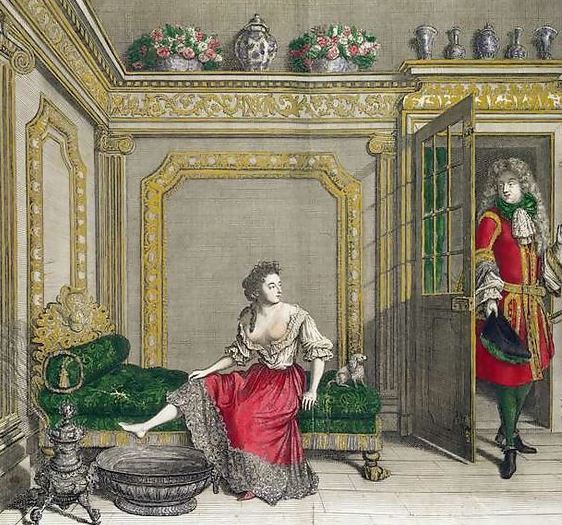
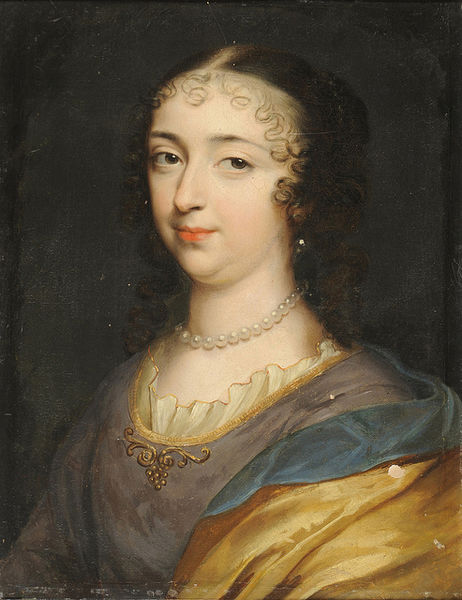
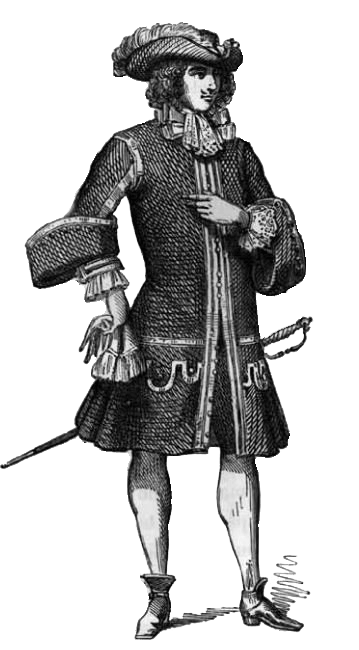
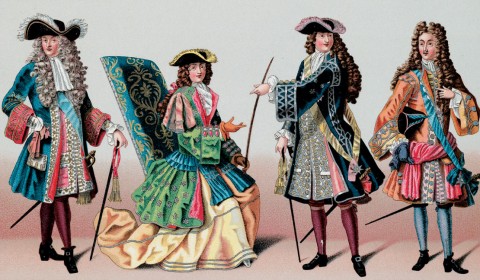
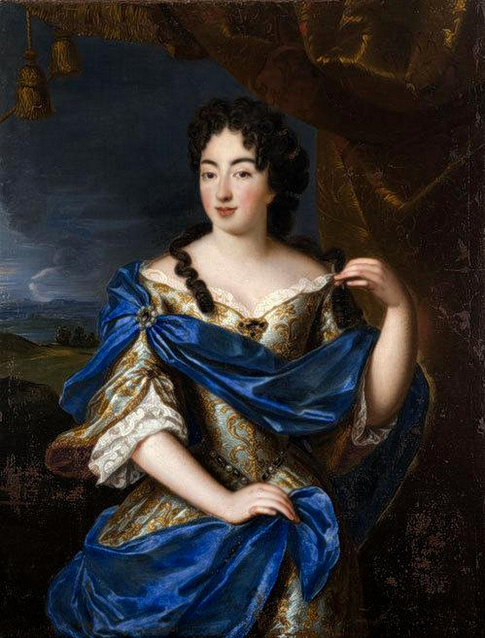
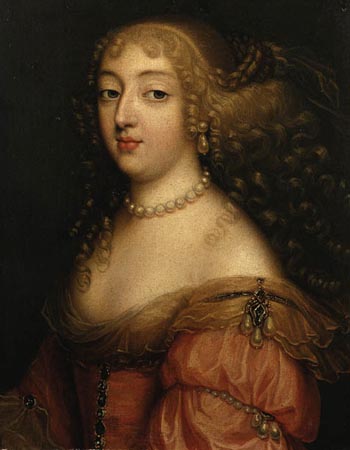
4 Comments
Hugues ( de) Bazelaire
En réalité nous ne savons pas vraiement qui a été le premier amour de Louis XIVj ni de quel genre d’amour il s’agissait: Caton “la borgnesse”, propriétaire de l’hôtel de Beauvais rue François miron à Paris, Marie Mancini; par qui, quand et où a-t-il été ” déniaisé”?
AuroraVonG
Premier amour comme dans son premier amour sérieux. Il ne voulait pas épouser les autres avant elle.
Adele
From an enchanting love without benefit of “bed-sports”, to a commitment of a mutual , friendship of all else, ….and including all aspects of emotions.
Thank you.
What an intriguing account of Louis XIV and Marie, and their intense, platonic, unrequited love of each other.
arthur
marie mancini fucking rocked and louis would have rocked with her had he run away, shes so cool, shes like actually rocknroll and i dont even say that. shes the personification of its a long way to the top if u wanna rocknroll by acdc. if she was alive in the 80 shed be punk. i love her so much